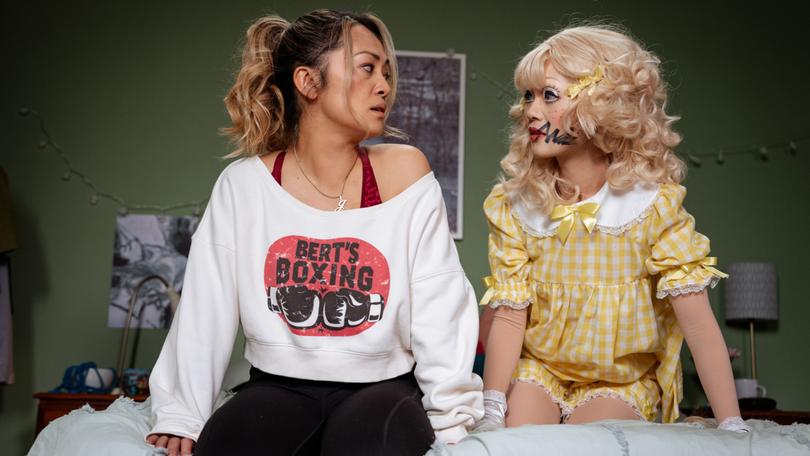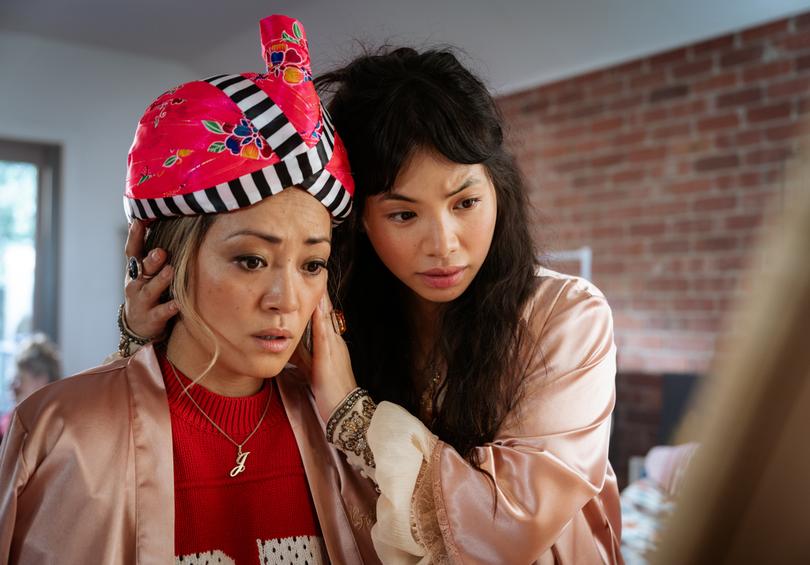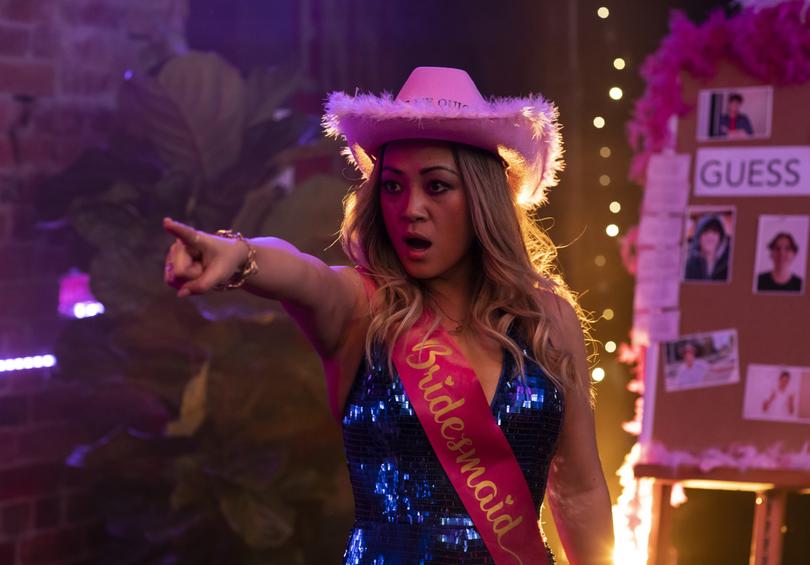White Fever: Ra Chapman’s ABC series tackles complex issues with raucous comedy
Raucous and smart, White Fever grapples with internalised racism by embracing over-the-top gags.

You don’t have to have recurring nightmares of Annabelle or Chucky to never want your dolls to come to life.
In ABC comedy White Fever, the doll is Cindy, the childhood toy of the show’s main character, Jane, a Korean-Australian adoptee who feels confronted when a friend points out she has a specific type of man she’s attracted to — burly, hairy and white.
When the creamy-skinned and blonde Cindy comes to life in the fourth episode, it’s terrifying on more levels than one. Cindy isn’t trying to murder anyone, but she is trying to stop Jane from exploring the aspects of herself she’s repressed for so long.
Sign up to The Nightly's newsletters.
Get the first look at the digital newspaper, curated daily stories and breaking headlines delivered to your inbox.
By continuing you agree to our Terms and Privacy Policy.White Fever creator and the actor playing Jane, Ra Chapman, tells The Nightly she wanted the human manifestation of Cindy “to be scary as hell”. And she was adamant the white doll had to be portrayed by a performer from an Asian background.
“What it represents is the inner Asian in Jane that has essentially been whitewashed,” she explains.

Jane’s resistance to her ethnic heritage is at the heart of White Fever, an uproarious half-hour TV series that fully leans into wacky physical comedy. The character grew up with a loving white family in a very white town, and Jane has exclusively dated white men.
Throughout the series, she tries to sexually connect with men from Asian backgrounds – all very classically attractive – and finds herself increasingly drawn to Yu Chang (Chris Pang), a childhood friend with whom she had lost touch.
For Chapman, White Fever is trying to grapple with internalised racism by “showing the reality of the effect of growing up in white spaces.” One scene involving a teenage Jane throwing eggs at the one Chinese restaurant in her regional hometown was a difficult one to write because it had to hit those notes without being an extreme racist act.
“It’s trying to talk about racism in a deeper, complex way. How do you do that in work? It’s something I struggle with in regards to where we’re at in regard to representation. I don’t think it’s enough to represent something. It’s always with the lens you come with and what aspect of it are you showing. It’s a tricky thing to balance.”

The actor and writer is a Korean adoptee and for White Fever and Jane, she drew on her experiences, but was careful to create a character separate from herself.
“I wanted to use a lot of artistic licence to really get into the psychology and not be constrained by true life events from my own story,” she says.
One thing she did take was. like Jane, she received a letter from her Korean birth father when she was a teenager, and like Jane, it was something she couldn’t accept inviting into her life at the time.
“At the time, it didn’t feel like a big deal but looking back, as an adult, I’m really interested in how I totally did not want a bar of it. I was kind of shocked by it but at the same time, I was in denial about it, and had convinced myself it didn’t matter, that I wasn’t affected. At the time, I was just wanted to go out with my mates and fit in.
“A lot of [Jane’s] feelings and internal struggles are personal but I’ve worked a lot in adoption communities so I guess Jane is an amalgamation of so many different little things over the past 10 years that I’ve picked up from other adoptees as well.”
Through its confident comedy, White Fever contends with complex issues of identity and belonging even as it places its lead character in awkward situations such as when she enthusiastically sniffs a date’s hairy armpit (Jane has some specific kinks) or has her physically fighting Cindy, a manifestation of herself.

The series doesn’t pretend to solve all the different layers of racism or represent all diaspora communities who feel pulled between cultures. But it’s in the conversation. It’s a work in progress, just like Chapman.
“It was also helpful for Jane to be a separate creation because it made me look at those experiences and look at Jane as a teenager and just feel sadness and empathy with her.
“We are always disassociating and critical of ourselves. But seeing that and writing that was really emotional for me. It helped me process a lot in terms of making sense of what the show’s about, how our formative years growing up in Australia and growing up in a family that doesn’t look anything like you – but there’s still so much love.
“When you look back, in hindsight, it’s a very specific and complex thing to experience. It’s still something I don’t have answers for, it’s still something I continue to explore.”
White Fever is on ABC and iview from Wednesday, April 10

